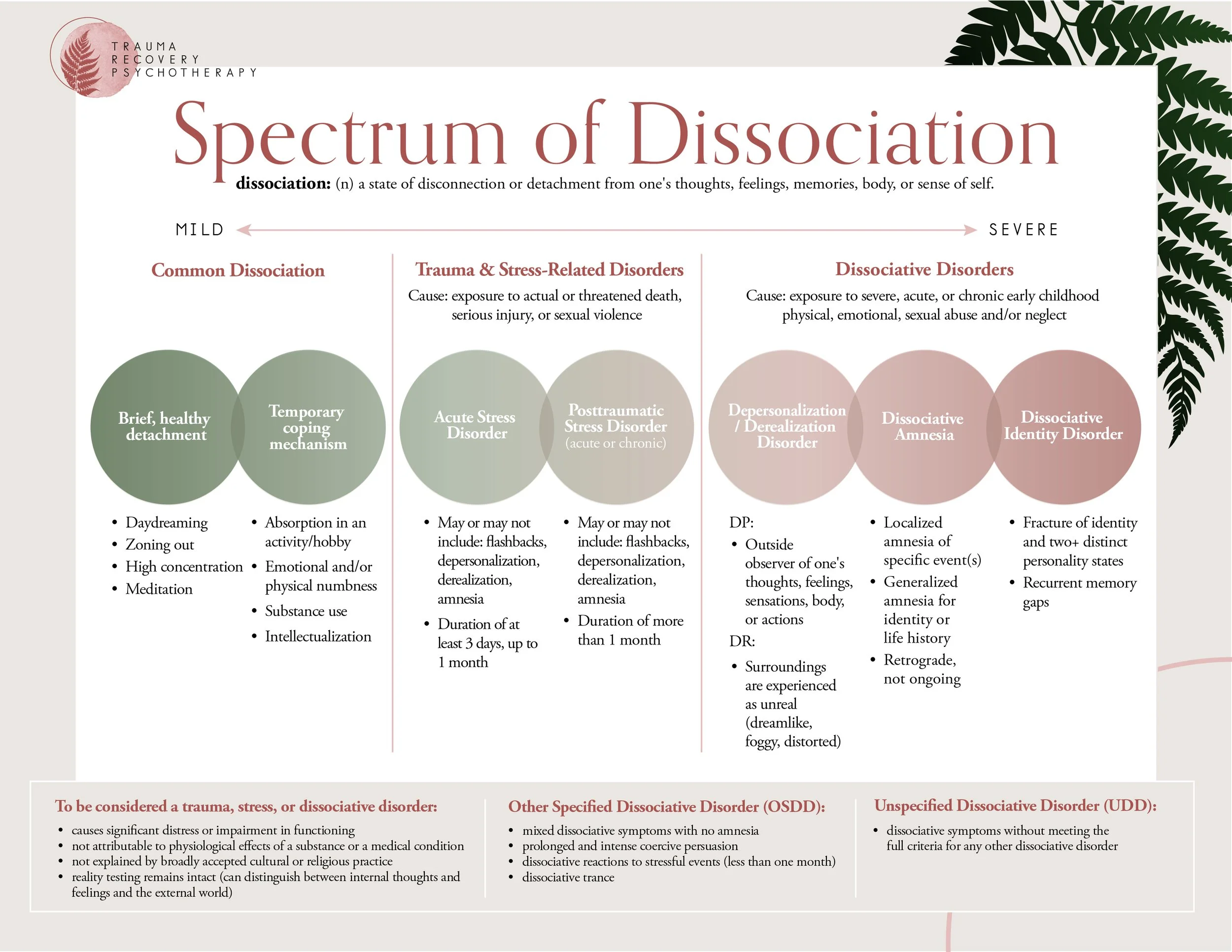
Therapy for Dissociative Disorders in Washington State (Telehealth)
Treatment for Dissociative Identity Disorder (DID), Depersonalization/Derealization Disorder, and Trauma-Related Dissociation
Dissociation is a natural survival response that helps to distance us from painful, overwhelming experiences. While effective and ingenious, dissociation can also be confusing and distressing.

Symptoms of Dissociative Disorders
you know something painful happened to you in the past, but you can’t quite remember what happened
you feel emotionally disconnected from your experiences, as if they happened to someone else
you regularly experience internal dialogue: voicing vastly different opinions, providing helpful or annoying feedback, offering comfort in distress, and/or arguing about which course of action to take next
you feel like it’s difficult to know who you are, given the differing opinions, feelings, interests, preferences, and desires you experience
you experience blackouts or memory issues
you get sudden, sometimes inexplicable, emotional shifts
you get vivid flashbacks in your mind
you had a difficult childhood, marked by feelings of fear or unpredictability
you struggle with ongoing thoughts of hurting yourself
you use substances to cope with difficult feelings

